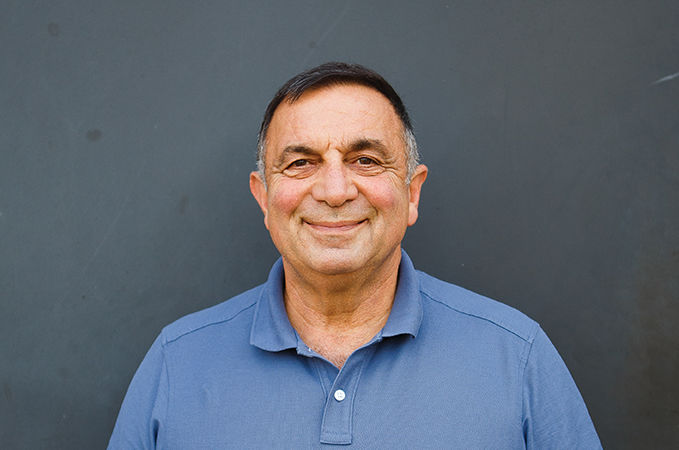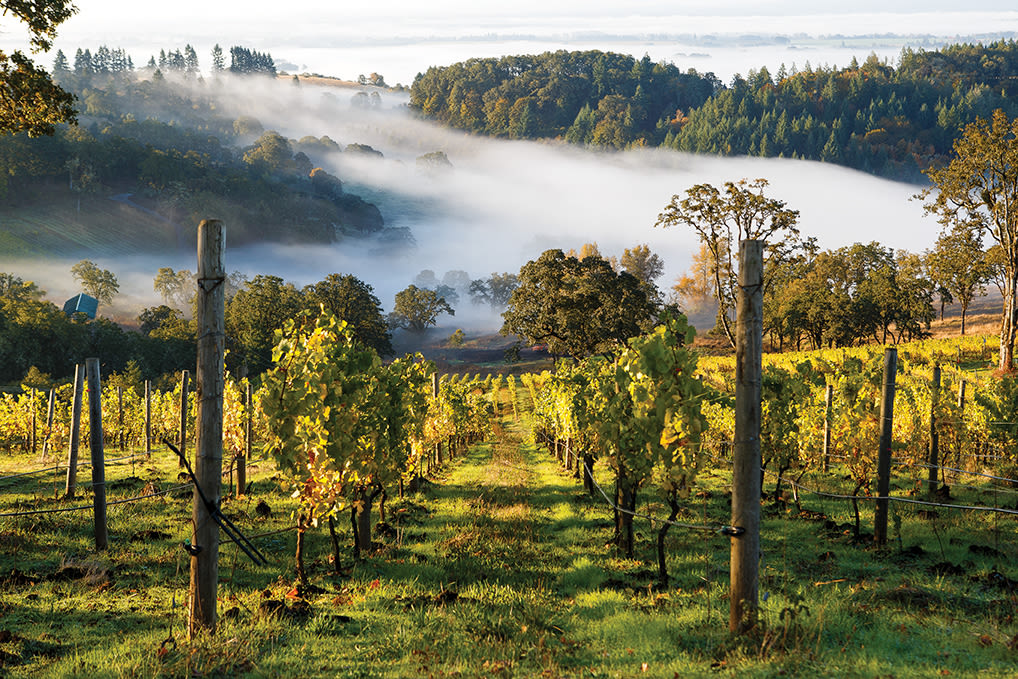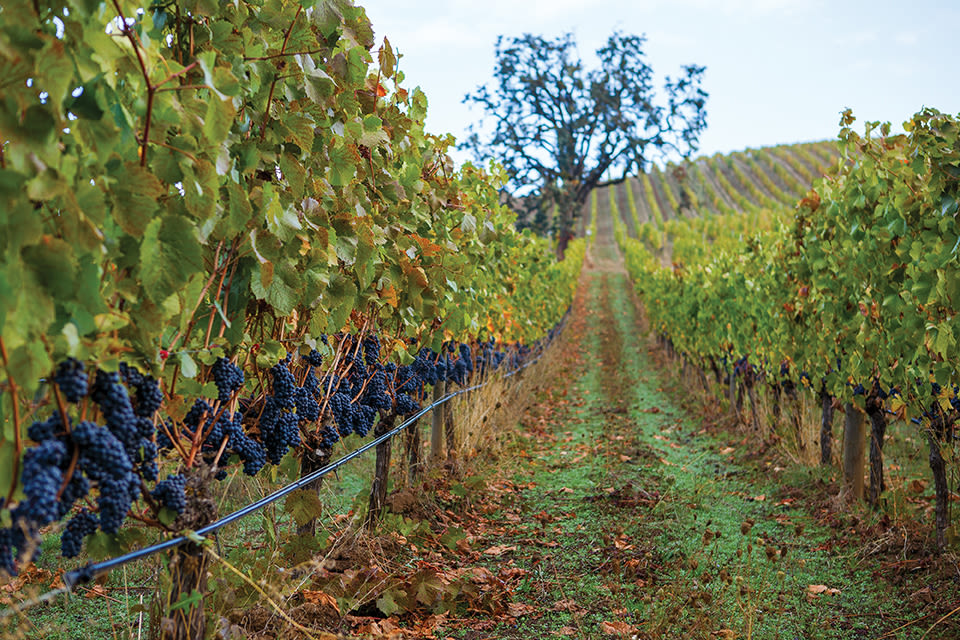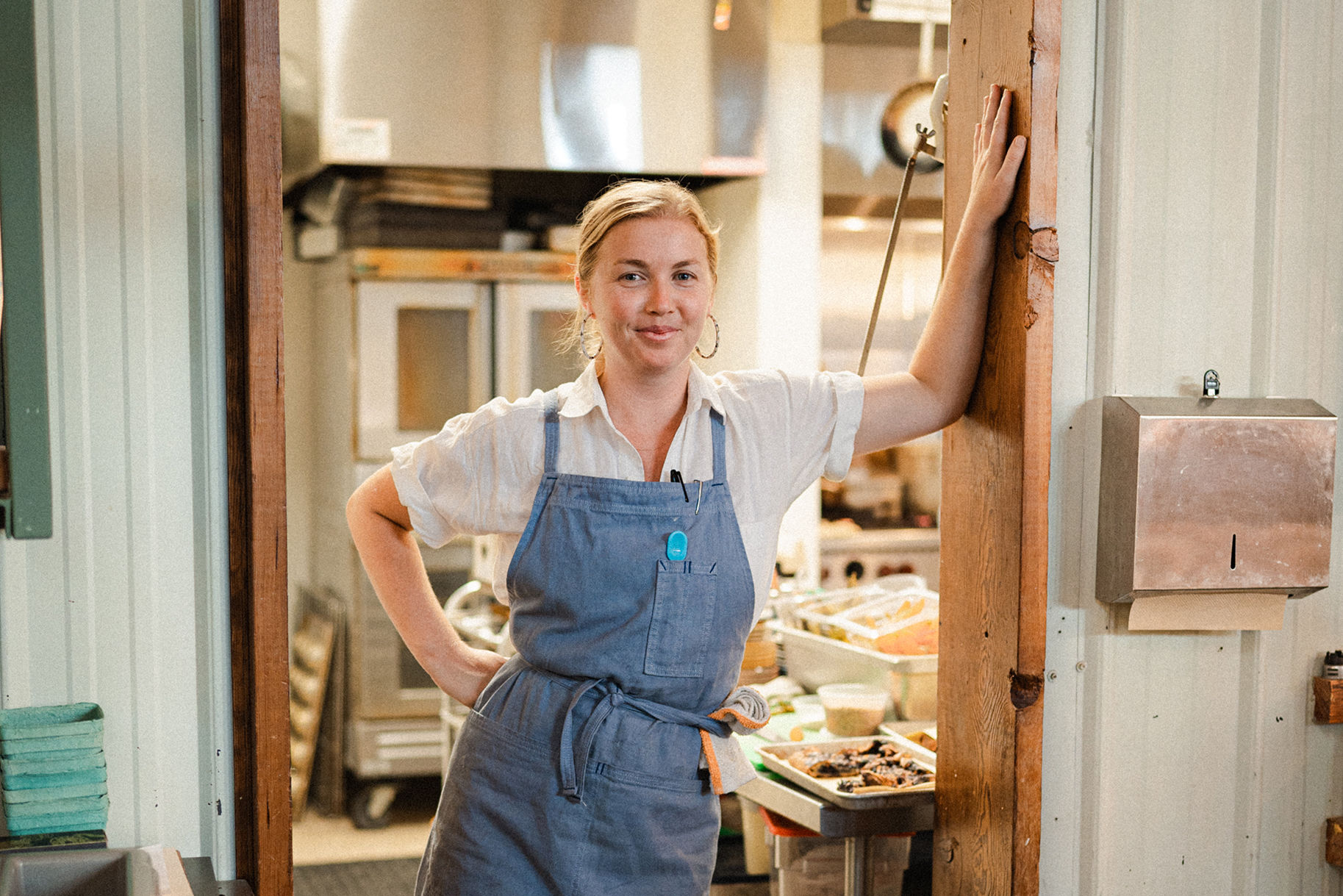
Meet Moe Momtazi, Keeper of Some of the Willamette Valley’s Most Primal Grapes
I know of a little Eden, right here in Oregon, as lush and green and verdant as the Gardens of Babylon. Here, a man with a modern story—an immigrant who escaped a violent revolution on the back of a motorcycle—has created a land out of time, some 500 acres of the healthiest farmland you can possibly imagine, watered by the Pacific rains, kissed by the Cascade sun.
His name is Moe Momtazi, and he grows grapes (pinot noir and chardonnay, mostly). The wines that are born here are among the very finest in the state, perhaps the country, and it all goes back to the land. “At first I thought of this place as an investment,” Moe Momtazi says. “But of course it became much more....”
He’s perhaps underselling himself.

Momtazi Vineyards
Image: Courtesy Momtazi Vineyards
Momtazi escaped from the Iranian Revolution in the late 1970s and made a name for himself in the Willamette Valley as an accomplished civil engineer and the owner of a construction company. He purchased a significant plot of land outside McMinnville in 1997, and set to work on a new project. At Momtazi Vineyards, Moe and his team (including his wife of four decades, Flora, and his three adult daughters) grow some 500 acres of highly coveted McMinnville AVA fruit, some which is bottled and sold under the family’s own line of wines, called Maysara, from the Persian word for “wine house.” The rest are sold to big-name winemakers, including St. Innocent, Kelley Fox, Fullerton, Dobbs, and Brianne Day.
“The fruit from Momtazi is always pristine,” says Day, “savage and dark, and a bit untamed.” Which is rather exactly the point.
Much has been made—some would argue too much—about “natural” wine and “natural” vineyard practices, what exactly this is supposed to mean, and how these things are explained to today’s wine drinkers across generations. It is an imperfect term, “natural,” but when approached with the soul of the vineyard in mind, natural practices are capable of producing extraordinary wines.

Moe Momtazi
Image: Courtesy Momtazi Vineyards
Far from a fad or a flash in the pan, a “natural” approach to winegrowing is deeply rooted in Moe Momtazi’s understanding of wine and life itself. “My grandfather was a farmer in the old country,” he tells me, “and back then we didn’t call it biodynamics or anything like that, we just called it ‘natural farming.’ What that implies is that whatever you take from Mother Nature you put it back in.” In practical terms, this means Momtazi farms without using fertilizers, pesticides, or chemical additives of any kind.
Instead, these grapes are treated using a complex system of holistic tinctures and herbal infusions—stinging nettle, horsetail, chamomile, dandelion, yarrow, and the like—sprayed at precise intervals related to the moon and harvest cycles. It is an ancient system of farming that was codified in the early 20th century by a controversial Austrian scholar named Rudolf Steiner, and today it serves as the basis for the modern biodynamics movement. Farms around the world can become certified in biodynamics by applying and submitting to inspection from Demeter International, a global organization with various national chapters engaged in certifying a broad range of agricultural entities, from fruit orchards to flower growers to vineyards.
Momtazi’s vineyards have had their Demeter certification since 2005, and with a full 15 years of the practice in place, the effect of stepping onto the land is dramatic. You sort of ... drive onto the farm at first, and things look nice, sure, but then you come around this curve and boom! It’s like a movie set or that green expanse where the Teletubbies live, almost impossibly bucolic and lush. There’s livestock walking down the path and butterflies in the air and worms in the soil, and a hillside full of vines.
As a human being, you intrinsically want to consume what comes from here, even if you don’t fully understand why. The connection is primal, and it feels a million miles away from the rows and rows of monocrop chemically treated vineyards you can find just down the road, all throughout the Willamette Valley, up and down the West Coast, and across our scarred planet.
This effect is no accident; it’s the result of a carefully implemented, rigorously followed approach to holistic land management that has become Momtazi’s late-in-life passion. Yet despite turning 70 in 2020, this is far from his working retirement. “The challenging part is that farming this way requires you to learn how nature works,” he says, “but this is also what I love about it. Human beings have been taking care of their environment and nature for thousands of years; it is only recently we have become disconnected from that.”
I asked Momtazi if he considered himself an environmentalist, to which he replied an emphatic “yes”—then proceeded to spin poetry by way of explanation. Indeed, a conversation with him can quickly turn philosophical, a fusion of modern conservationist thought and a centuries-old cultural respect for the earth and land, rooted in Zoroastrian theory on the duality of nature and man, good and evil. “Zoroaster preached to his people that in farming, we see the macrocosm, the universe, the planets, the solar system—all of it, down to the temperature of the earth, is what makes us able to sustain life. But we also see the really small creatures, and how they are impacted by what we put into the soil, the earth, and that our toxic behavior towards them becomes like an evil thing.”
That’s pretty heavy stuff for a farmer; Momtazi is no average vineyard owner. Yet natural or not, like nearly everything and everyone the family operation has been impacted by COVID-19 realities. “It has really crippled us far as distribution in other states,” he says. Some of the fruit they would normally have sold to other winemakers has instead been repurposed for Maysara, the house label that expects to make upwards of 20,000 cases in 2020 (it typically makes around 16,000).

Momtazi Vineyards
Image: Courtesy Momtazi Vineyards
But there is an unexpected silver lining. “Foot traffic is way up,” says Moe. “People cannot go to restaurants or bars, but they come directly to us. Our wine club members and customers have really supported us, and we’re very appreciative of that.”
It’s an appreciation that runs both ways. “This country has been so good to me and I want to do something good in return,” says Momtazi. “This has become my passion.” There’s no mistaking his seriousness; you can see it in the land, feel it in his words, and, perhaps most poetically, taste it in the wines made with the grapes from the vineyard, no matter the winemaker.




